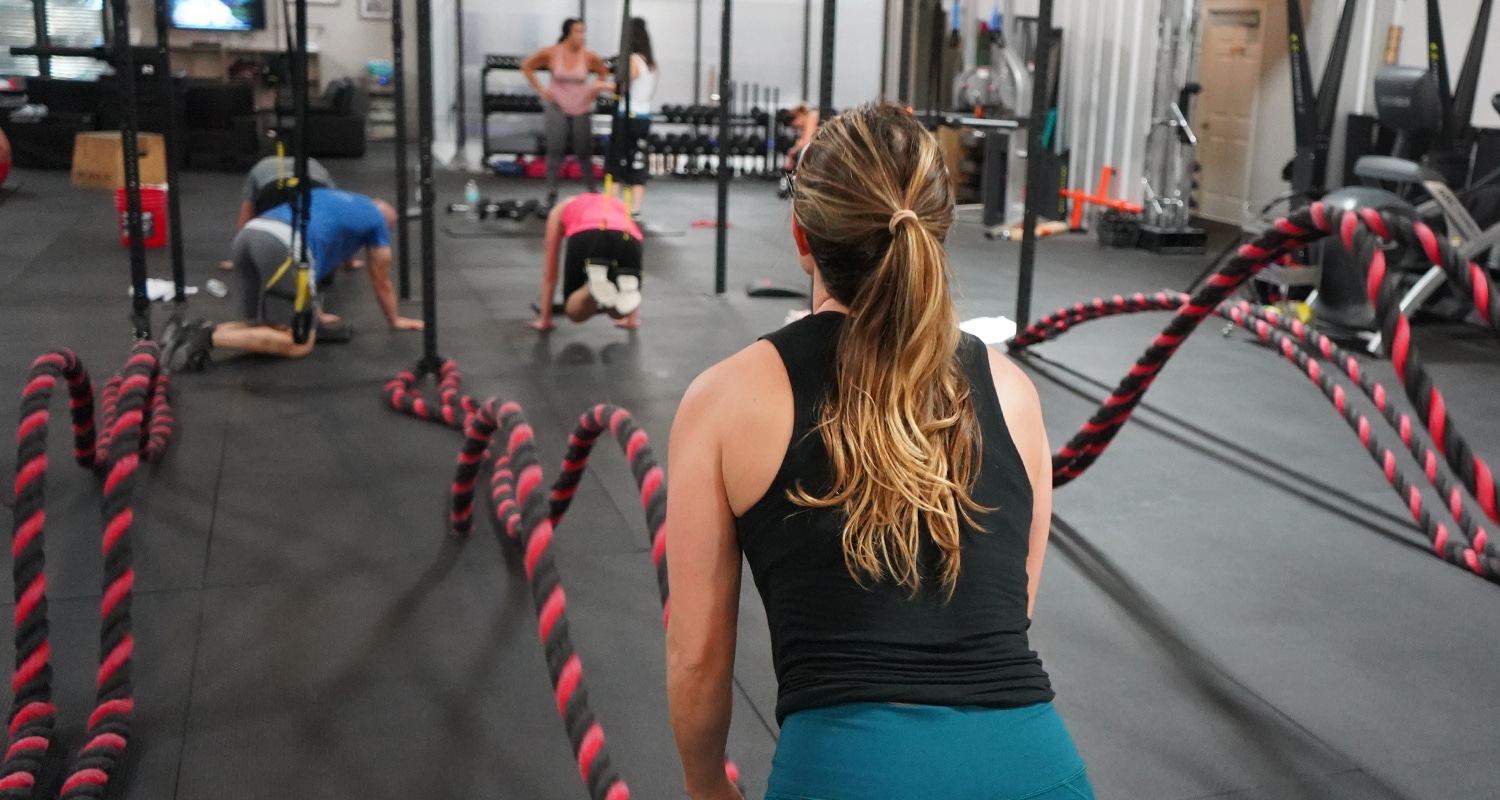
The Dalai Lama famously said, “Happiness is not ready-made. It comes from your own actions.”
He was onto something. Happiness can feel out of your control (especially if you’re unhappy), but you actually have a lot more influence over your mood than you might think.
Bulletproof Radio podcast guest and bestselling author Gretchen Rubin explains that most people feel adequately happy, but there are simple things you can do to feel happier that are easy to achieve.
“Most people are pretty happy, but at the same time, there’s a lot of low hanging fruit. There are a lot of things that are well within our reach without spending a lot of time, energy or money that can make us happier. I think, why would you not do that if there are these fairly straightforward, easy, concrete, manageable things to do that are going to boost your happiness?” says Rubin.
With a few well-placed biohacks, you can take your happiness to new levels.
Subtypes of happiness
There are two major components of happiness:
- Hedonia is pleasure, pure and simple. It’s a quick spike of enjoyment. Think sex, good conversation, an impulse buy, or a delicious meal.
- Eudaimonia comes from meaning and purpose. Personal growth, self-acceptance, life goals, and deep friendships all contribute to eudaimonia.
Hedonia and eudaimonia feed into each other and add up to your overall happiness. You want both in the right amount. Hedonia is easy to come by and short-lived; too much of it can lead to addiction. Eudaimonia, on the other hand, takes a lot of work, and chasing your dreams without taking a minute to enjoy yourself can burn you out. Sustainable happiness comes from balancing pleasure and purpose. Let’s talk about how you can get plenty of both in your life.
Ways to create long-term, sustainable happiness
Exercise

If you don’t want to break a sweat, you can always just walk. 10 days of power walking was enough to relieve symptoms in depressed people.[ref url=”http://www.ncbi.nlm.nih.gov/pmc/articles/PMC2465130/”]
Get angry
Nobody’s positive all the time. Sadness, anger, and other “negative” emotions are a part of life, and getting in touch with them can actually make you happier overall. A hallmark study of about 37,000 people found that greater emodiversity – the variety of emotions you express – correlates with greater happiness overall, even if you’re experiencing emotions like sadness, shame, and anger on a regular basis.[ref url=”http://www.hbs.edu/faculty/Publication%20Files/quoidbach%20et%20al%202014_9105d828-db78-49eb-b434-23f53cdba042.pdf”]
Some people are naturally in touch with their emotions, but if you tend to bottle things up, try this: the next time you feel like crying, let yourself. If someone makes you angry, let that person know. And on the flip side, if you’re feeling grateful or loving, express that too. The more aware you are of your emotions, the happier you’ll be.
Spend time with friends…and touch them more
Humans are the most social creatures on the planet,[ref url=”http://www.hbs.edu/faculty/Publication%20Files/quoidbach%20et%20al%202014_9105d828-db78-49eb-b434-23f53cdba042.pdf”] so it’s no surprise that the strength of your connection with others plays a tremendous role in how happy you are.http://science.sciencemag.org/content/317/5843/1344.long Social connectedness also decreases your risk of cancer, cardiovascular disease, and dementia.[ref url=”http://www.ncbi.nlm.nih.gov/pmc/articles/PMC1693420/pdf/15347534.pdf”]
You know the warm, fuzzy feeling you get when you hit it off with someone? That’s thanks to oxytocin, a hormone that increases trust, kindness, empathy, gratitude, and a cascade of other emotions, all of which contribute to your overall happiness.[ref url=”http://www.sciencedirect.com/science/article/pii/S0889159102000739″][ref url=”http://onlinelibrary.wiley.com/doi/10.1111/j.1749-6632.2009.04504.x/abstract”] It also activates reward pathways in the brain, so you and the person you touch feel good.
Human touch, in particular, sparks huge oxytocin release,[ref url=”http://www.nature.com/nature/journal/v435/n7042/full/nature03701.html”] making it one of the fastest ways to bond with people.
Unfortunately, interpersonal contact is rare these days. One of the downsides of technology is that it’s tough to give someone a hug through your phone. Non-sexual human contact is becoming less and less common, especially among friends and acquaintances. Here are a few workarounds:
- Make it a goal to communicate via touch more. It can be as simple as a nudge on the arm or a high-five. You may get uncomfortable with intimacy at first, but it’ll start to feel natural quickly.
- Take up a hobby that involves prolonged physical contact. Two superb options are jiu-jitsu and acro-yoga. As a bonus, both require trusting your partners, which is another happiness booster.[ref url=”http://www.psyneuen-journal.com/article/S0306-4530(13)00336-3/abstract”][ref url=”http://stat.psych.uiuc.edu/~ediener/Documents/Kesebir-Diener_2008.pdf”] Plus you’ll learn to use your body in badass new ways.
- Get a dog. Pet owners are happier on average,[ref url=”http://stat.psych.uiuc.edu/~ediener/Documents/Kesebir-Diener_2008.pdf”] and a 2012 study found that when owners gave their dogs kisses both parties released oxytocin.[ref url=”http://happierhuman.com/wp-content/uploads/2014/04/5.-Friends-With-Benefits-On-the-Positive-Consequences-of-Pet-Ownership.pdf”] Petting is good too, but don’t hug your dog; the feeling of being grabbed can stress a pooch out.[ref url=”https://www.researchgate.net/profile/Eva_Hydbring_Sandberg/publication/231556739_Associations_between_the_Psychological_Characteristics_of_the_HumanDog_Relationship_and_Oxytocin_and_Cortisol_Levels/links/09e41506c34d5e52a4000000.pdf”]
Spend time with your friends and touch them more. It’s one of the best ways to make yourself happier.
Buy happiness (sort of)
Being rich isn’t enough to make you happy – lottery winners are no happier a year after collecting their jackpots,[ref url=”https://www.psychologytoday.com/blog/canine-corner/201604/the-data-says-dont-hug-the-dog”] and while people who earn more are happier to a point, the correlation dies off once you hit $75,000 in income.[ref url=”http://www.ncbi.nlm.nih.gov/pubmed/690806″]
“This is why people need gratitude practices because it’s very easy to forget how much it contributes to your happiness when you can write the rent check without worry,” says Rubin.
You can use money in ways that will bolster your happiness, though. The trick to buying happiness is spending your money well. Harvard researchers studied how to use money to maximize your happiness.[ref url=”http://www.pnas.org/content/107/38/16489.long”] Here are a couple of their conclusions:
Be generous
Spending money on others seems to be universally satisfying. Studies in the US and Uganda – two vastly different cultures – found that in both cases, spending extra money on a friend is more satisfying than spending it on yourself.[ref url=”http://scholar.harvard.edu/files/danielgilbert/files/if-money-doesnt-make-you-happy.nov-12-20101.pdf”] A brain-imaging study from 2007 revealed that generosity in the form of gift-giving also lights up the reward center of your brain.[ref url=”https://www.apa.org/pubs/journals/releases/psp-104-4-635.pdf”]
If you want to turn generosity into a habit, set aside a percentage of your paycheck to spend on other people. It doesn’t have to be much – 5% is a good number. What’s important is getting in the habit of spreading the love.
Buy experiences, not things

“After devoting days to selecting the perfect hardwood floor to install in a new condo, homebuyers find their once beloved Brazilian cherry floors quickly become nothing more than the unnoticed ground beneath their feet. In contrast, their memory of seeing a baby cheetah at dawn on an African safari continues to provide delight.”[ref url=”http://www.pnas.org/content/107/38/16489.long”]
Spend your hard-earned cash on experiences. Join a class. Book a trip. Try a crazy new biohack. Take a friend out to dinner. View money as a tool to fuel your passions instead of a way to accumulate things. You’ll get more out of it that way.
Have fun
This one seems obvious, but it’s all too easy to get caught up in adult life and forget to enjoy yourself. Work and other obligations can pile up quickly, and they’re important, but if you don’t balance them they can dominate your life and burn you out. Take a hint from your childhood self and play every day.
Relaxing is as important as working, and one feeds into the other: having fun makes you about 12% more productive at work.[ref url=”http://www.ncbi.nlm.nih.gov/pubmed/17569866″] Cook, read, dance, run around with your kids, or just kick back and watch some TV. Whatever it is you like to do, make time for yourself to do it, and don’t let obligations get in the way. As author Marthe Troly-Curtin said, “Time you enjoy wasting is not wasted time.”
Practice gratitude
Gratitude is one of the strongest predictors of happiness. In a 2003 study, participants wrote down things for which they were grateful at the end of every day, things that annoyed them, or neutral things. After two weeks, the grateful participants were happier, more positive, more socially courageous, more likely to help others, and more emotionally open.[ref url=”http://www2.warwick.ac.uk/fac/soc/economics/staff/eproto/workingpapers/happinessproductivity.pdf”] They even slept better.
It seems so simple, but gratitude is seriously powerful. Take a minute before bed to think about the good things in your life and the positive moments in your day.
Bonus tip: have your kids list three gratitudes before bed. Seriously. Try it for the next week. The results may surprise you.
Boost your mood with supplements

5-HTP
5-HTP is what your body naturally makes from the amino acid tryptophan. From there, 5-HTP is converted into serotonin and melatonin. You know serotonin, the neurotransmitter responsible for boosting mood and emotional well being – all while helping your body deal with stress? But your body can sometimes struggle with turning 5-HTP into that all-important happy neurotransmitter. Supplementing with 5-HTP — which readily crosses the blood-brain-barrier — is the easiest way to organically support your levels of the mood-lifting neurotransmitter serotonin.
Dose: 50 mg
Recommended brand: NOW Foods 5-HTP
L-tryptophan
Tryptophan is a precursor to serotonin, a neurotransmitter that regulates your mood. Prescription antidepressants like SSRIs (selective serotonin reuptake inhibitors) work by increasing serotonin. Tryptophan does the same, but much more weakly. Double-blind, placebo-controlled studies have found that tryptophan can increase optimism and reverse mild depression.[ref url=”http://greatergood.berkeley.edu/pdfs/GratitudePDFs/6Emmons-BlessingsBurdens.pdf”][ref url=”http://www.ncbi.nlm.nih.gov/pubmed/7156248″] Tryptophan also improves sleep quality and combats stress.
NOTE: If you’re on any kind of antidepressant, talk to a doctor before taking tryptophan. The two stack with each other, which can be dangerous.
Dose: 1000-2000 mg/day
Recommended Brand: Jarrow Formulas L-tryptophan
St. John’s Wort
St. John’s wort is another way to boost your serotonin and, in turn, your mood. Several meta-analyses have found that it can reverse mild to moderate depression, sometimes as effectively as prescription antidepressants.[ref url=”http://anp.sagepub.com/content/22/1/83.abstract”][ref url=”http://www.rand.org/pubs/research_reports/RR1048.html”]
St. John’s wort interacts with antidepressants and common ADHD drugs, and it can decrease the effectiveness of hormonal birth control, so again, talk to your doctor before trying it.
Dose: 300 mg/day, taken in the morning
Recommended Brand: Source Naturals St. John’s Wort
Modafinil (Provigil)
Modafinil is a potent nootropic that improves mood, as well as focus, motivation, and vigilance– all without causing withdrawal and with very low risk of dependence.[ref url=”http://archinte.jamanetwork.com/article.aspx?articleid=485215&resultclick=1#CONCLUSIONS”][ref url=”http://www.accessdata.fda.gov/drugsatfda_docs/label/2015/020717s037s038lbl.pdf”][ref url=”https://www.ncbi.nlm.nih.gov/pubmed/23065655″] You’ll need a prescription for modafinil. Doctors prescribe it for daytime sleepiness, fatigue, and off-label for depression. You can read more about it here.
Vitamin D3
Vitamin D is one of the most important supplements you can take. It acts on over a thousand genes and helps balance your hormones. Many people are deficient, particularly in the winter, and low vitamin D correlates with depression.[ref url=”https://www.ncbi.nlm.nih.gov/pmc/articles/PMC4319252/”] Supplementing with it improves mood.[ref url=”http://bjp.rcpsych.org/content/bjprcpsych/202/2/100.full.pdf”]
Dose: 1000 IU per 25 lbs. bodyweight, taken in the morning
Recommended Brand: Vitamins A-D-K (Vitamins A, D, and K work together to support bone, heart, and immune function.)
Happiness is contagious











